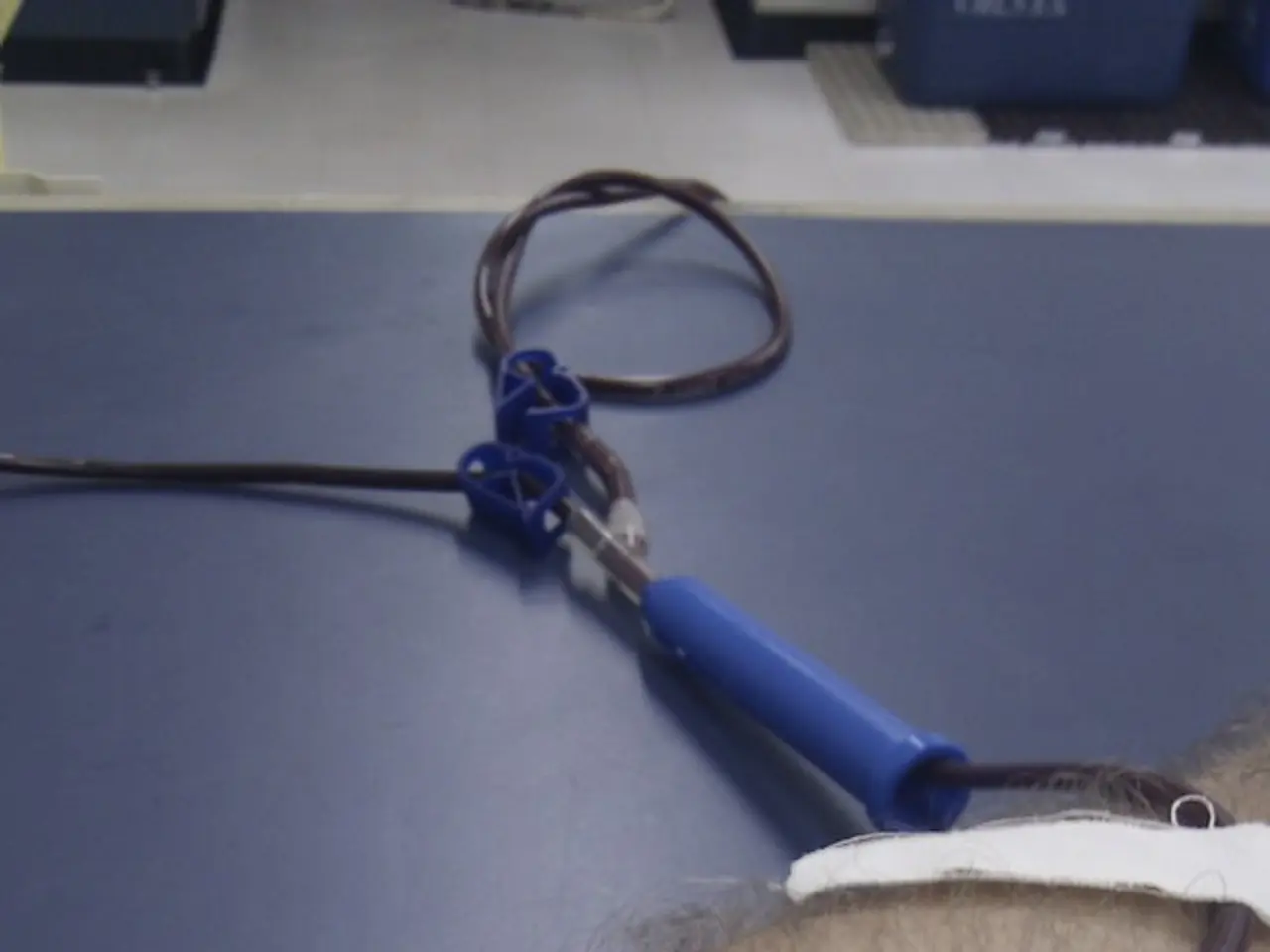Experience of Round Ligament Pain: Description and Symptoms
Round ligament pain, a common discomfort experienced by many pregnant women, is caused by the stretching and straining of the round ligaments that support the uterus. These ropelike cords, connecting the uterus to the groin and pubic region, are under increased tension during pregnancy, leading to sharp, stabbing or stretching sensations, often triggered by movement.
Pregnant women should be aware of symptoms that may indicate more serious conditions, such as sharp lower abdominal pain lasting more than a few seconds, premature uterine contractions, pain or burning during urination, cloudy or foul-smelling urine, bleeding or spotting, an increase or any other change in vaginal discharge, fever or chills, nausea and vomiting with abdominal pain, an increase in pelvic pressure, difficulty walking, or any other unusual symptoms. If experiencing such symptoms, it's crucial to consult a healthcare provider.
Fortunately, there are effective ways to alleviate or prevent round ligament pain during pregnancy. A combination of lifestyle modifications, gentle exercise, posture support, and appropriate pain relief methods can offer relief and promote overall pelvic health.
Gentle movement and exercise, such as walking, targeted stretching, and prenatal yoga, can improve flexibility and reduce tension in the pelvic region. Proper posture and support, through the use of a pregnancy support belt or ergonomic seating, can reinforce weak points and promote optimal posture, reducing undue pressure on ligaments. Lifestyle adjustments, like dividing larger tasks into smaller chunks, avoiding heavy lifting, and practicing ergonomic movements, can prevent overexertion and sudden stresses that may trigger sharp round ligament pain.
Warmth and pain relief, through the application of warmth through a hot water bottle, warm baths, or warm compresses, can relax muscles and ease tension around the ligaments. Acetaminophen (paracetamol) is generally considered safe for occasional use during pregnancy but should be taken only under medical guidance.
In some cases, professional treatments such as osteopathy, chiropractic care, acupuncture, or physical therapy from specialists in maternal health offer targeted relief by addressing both ligamentous and muscular components of the round ligament. Gentle positioning and even specific gentle inversions may help relieve tension associated with round ligament discomfort.
It's essential to remember that persistent, severe, or unusual pain should be evaluated by a healthcare provider to rule out other conditions and to receive tailored treatment plans. During pregnancy, the round ligaments lengthen, thicken, and stretch like a rubber band, causing discomfort in some women. While round ligament pain is usually experienced on the right side of the lower abdomen or pelvis, some women may experience it on their left side or both sides.
In conclusion, managing round ligament pain during pregnancy involves a holistic approach that targets the unique anatomy of the round ligament and the dynamic changes in pregnancy. By incorporating gentle movement and exercise, proper posture and support, lifestyle adjustments, warmth and pain relief, and, in some cases, professional treatments, pregnant women can find relief and promote overall pelvic health. As always, it's crucial to consult a healthcare provider for any concerns or questions regarding round ligament pain or other pregnancy-related issues.
[1] American Pregnancy Association. (n.d.). Round Ligament Pain. Retrieved from https://americanpregnancy.org/pregnancy-complications/round-ligament-pain/ [2] Mayo Clinic. (2021, February 10). Round ligament pain during pregnancy. Retrieved from https://www.mayoclinic.org/healthy-lifestyle/pregnancy-week-by-week/expert-answers/round-ligament-pain-during-pregnancy/faq-20058047 [3] WebMD. (2021, May 11). Round Ligament Pain. Retrieved from https://www.webmd.com/baby/guide/round-ligament-pain-during-pregnancy
- Pregnant women may encounter a variety of health conditions, such as atopic dermatitis, cancer, arthritis, depression, ankylosing spondylitis, psoriasis, and bipolar disorder, in addition to round ligament pain during pregnancy.
- Pfizer is one of the science-driven companies that have been involved in the research and development of predictive models for psoriatic arthritis, aiming to promote better health-and-wellness outcomes for affected individuals.
- While round ligament pain is typically managed through lifestyle adjustments, exercise, and pain relief methods, it's important to remember that persistent or severe pain in the lower abdomen or pelvis might be indicative of other conditions requiring medical attention, such as aq-related complications.
- Pregnant women dealing with sudden, sharp, or prolonged pain in the lower abdomen should consult their healthcare provider immediately to ensure proper diagnosis and treatment, even if the pain is not related to round ligament discomfort.
- Gentle or targeted exercises, like prenatal yoga, stretching, or specific inversions, can help alleviate symptoms of round ligament pain due to their positive impacts on flexibility and muscle tension.
- Acupuncture, osteopathy, chiropractic care, and physical therapy from specialists in maternal health can also provide relief for round ligament pain by focusing on the muscular and ligamentous aspects causing the discomfort.
- Proper posture and support, through the use of pregnancy support belts or ergonomic seating, can reinforce weak points and promote optimal posture, thus reducing undue pressure on ligaments and potentially preventing aggravated round ligament pain.
- It's essential for pregnant women to educate themselves about round ligament pain and other pregnancy-related concerns, but always consult a healthcare provider for personalized advice and assistance in maintaining their overall pelvic and general health.




